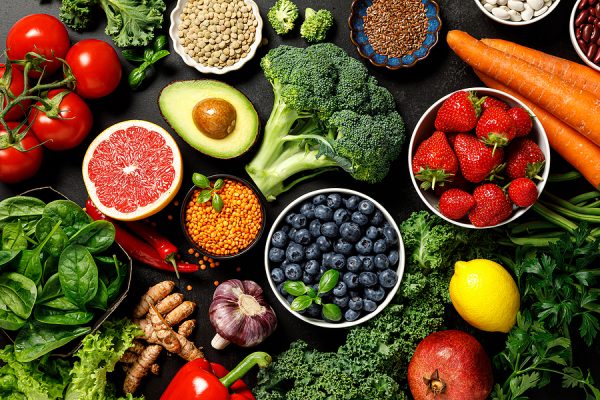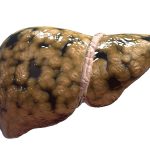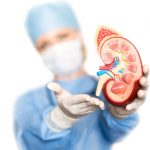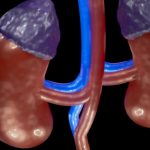As an Advanced Natural Wellness reader, you know that chronic inflammation is the driving force behind aging and age-related disease. It’s an underlying contributor to heart disease, diabetes, stroke, arthritis, non-alcoholic fatty liver, kidney disease, cancer, inflammatory bowel disease, Alzheimer’s disease, premature aging and so much more!
Unlike acute inflammation – the kind of inflammation you see when a wound turns hot, red and painful – chronic inflammation is invisible. You can’t see it or feel it. This long-term inflammatory state just silently eats away at your health and well-being.
For the most part, you can blame it on oxidative stress. This is something that occurs when unstable oxygen molecules known as free radicals build up in the cells and aren’t eliminated by the body. When this happens, it plays a crucial role in the development and persistence of inflammation.
There are a lot of things that contribute to oxidative stress and inflammation. The foods you eat. The amount of physical activity you get. Stress, alcohol, medications, excess weight and poor sleep habits all play a role.
But thankfully, there are ways to eliminate those damaging free radicals.
Your Best Weapon to Neutralize Free Radicals
The best way to protect cells from oxidation is to load your body up with antioxidant-rich foods that reduce oxidation by neutralizing the free radicals in your body.
The array of antioxidants in our food supply is amazing. There is vitamin C, vitamin E and vitamin A. You’ve got selenium, manganese, zinc and copper. Your yellow/orange/red foods will contain carotenoids like lycopene, lutein and zeaxanthin. And don’t forget your flavones, anthocyanins, catechins and sulfur compounds.
It’s surprising how effective foods containing these substances can be when it comes to improving your health.
For example, a review of 30 different studies found that a higher intake of lycopene-rich tomatoes was associated with about a 20% lower risk of prostate cancer. Other studies suggest that, even after a diagnosis of prostate cancer, tomato products can reduce progression of the disease.
Interestingly, tomatoes have to be exposed to heat to release the cancer-fighting lycopene. So choose cooked or processed tomato products to get the biggest dose of lycopene.
For cardiovascular health, you have allium vegetables like garlic, onion, leek and shallots. The combination of flavonols and sulfur compounds in alliums make them antioxidant powerhouses. Eating these foods on a regular basis is associated with about a 64% reduced risk of cardiovascular disease. They’re also great for your kidney health and blood sugar; plus they have anti-cancer properties.
And when researchers investigated the effects of antioxidant-rich foods on insulin resistance, they found that simply adding fruits and vegetables containing about 900 mg of antioxidants to the diet each day helps improve insulin response.
Some of the best antioxidant foods and beverages include coffees, teas, fruits, vegetables, spices, herbs, nuts and seeds. You’ll notice all of these are plant-based. In general, meat, poultry and fish all have pretty low antioxidant values. However, protein and omega-3 fatty acids (found in fish) may help enhance antioxidant capacity.
Turn on Your Master Antioxidant
There is a powerful antioxidant that is produced by your own body. It’s called glutathione, and it is found in nearly every single cell in the body. While glutathione is an amazing antioxidant alone, it also works to recycle other antioxidants. So when levels are high, your antioxidant status increases exponentially.
And there are several ways to help your body make more of it.
Make sure you get enough protein in your diet. The amino acids found in protein are absolutely necessary for glutathione synthesis.
Wild caught fish, grass-fed beef and pasture-raised poultry all contain protein. Just don’t go overboard on them. These animal-based foods should only account for about 15% of your diet. The other 85% should be whole, plant-based foods.
With that in mind, I like to add plant proteins like beans, peas and lentils to my meals. I toss nuts and seeds into salads, sprinkle them over veggies, and frequently eat them by the handful.
You’ve also got high protein foods like eggs, kefir, coconut milk and plain organic Greek yogurt. You can even whip up a protein shake or smoothie.
Eat more sulfur-rich foods. In particular, green foods like asparagus, avocado, cucumber, green beans and spinach all contribute to glutathione production. You can also take a sulfur supplement called methylsulfonylmethane (MSM).
Drink green tea every day to significantly increase glutathione levels, butyrate levels in the gut (for colonic health/healing) and enhance antioxidant status.
Take an N-acetyl-L-cysteine (NAC) supplement. While it might appear to make more sense to take a glutathione supplement, most oral forms of glutathione aren’t absorbed very well by the body. NAC is a precursor to glutathione, and is much more effective at helping your body produce more of it.
And don’t forget to stay active! Physical activity actually increases glutathione production in the body and supports the entire glutathione antioxidant system.
SOURCES:
Lobo V, Patil A, Phatak A, Chandra N. Free radicals, antioxidants and functional foods: Impact on human health. Pharmacogn Rev. 2010 Jul;4(8):118-26.
Rowles JL 3rd, Ranard KM, Applegate CC, Jeon S, An R, Erdman JW Jr. Processed and raw tomato consumption and risk of prostate cancer: a systematic review and dose-response meta-analysis. Prostate Cancer Prostatic Dis. 2018 Sep;21(3):319-336.
Bowen P, Chen L, Stacewicz-Sapuntzakis M, Duncan C, Sharifi R, Ghosh L, Kim HS, Christov-Tzelkov K, van Breemen R. Tomato sauce supplementation and prostate cancer: lycopene accumulation and modulation of biomarkers of carcinogenesis. Exp Biol Med (Maywood). 2002 Nov;227(10):886-93.
Bahadoran Z, Mirmiran P, Momenan AA, Azizi F. Allium vegetable intakes and the incidence of cardiovascular disease, hypertension, chronic kidney disease, and type 2 diabetes in adults: a longitudinal follow-up study. J Hypertens. 2017 Sep;35(9):1909-1916.
Kothari D, Lee WD, Kim SK. Allium Flavonols: Health Benefits, Molecular Targets, and Bioavailability. Antioxidants (Basel). 2020 Sep 19;9(9):888.
Wan Q, Li N, Du L, Zhao R, Yi M, Xu Q, Zhou Y. Allium vegetable consumption and health: An umbrella review of meta-analyses of multiple health outcomes. Food Sci Nutr. 2019 Jul 10;7(8):2451-2470.
Mancini A, Martorana GE, Magini M, Festa R, Raimondo S, Silvestrini A, Nicolotti N, Mordente A, Mele MC, Miggiano GAD, Meucci E. Oxidative stress and metabolic syndrome: Effects of a natural antioxidants enriched diet on insulin resistance. Clin Nutr ESPEN. 2015 Apr;10(2):e52-e60.
Carlsen MH, Halvorsen BL, Holte K, Bøhn SK, Dragland S, Sampson L, Willey C, Senoo H, Umezono Y, Sanada C, Barikmo I, Berhe N, Willett WC, Phillips KM, Jacobs DR Jr, Blomhoff R. The total antioxidant content of more than 3100 foods, beverages, spices, herbs and supplements used worldwide. Nutr J. 2010 Jan 22;9:3.
Hajianfar H, Paknahad Z, Bahonar A. The effect of omega-3 supplements on antioxidant capacity in patients with type 2 diabetes. Int J Prev Med. 2013 May;4(Suppl 2):S234-8.
Minich DM, Brown BI. A Review of Dietary (Phyto)Nutrients for Glutathione Support. Nutrients. 2019 Sep 3;11(9):2073. Elokda AS, Nielsen DH. Effects of exercise training on the glutathione antioxidant system. Eur J Cardiovasc Prev Rehabil. 2007 Oct;14(5):630-7.






